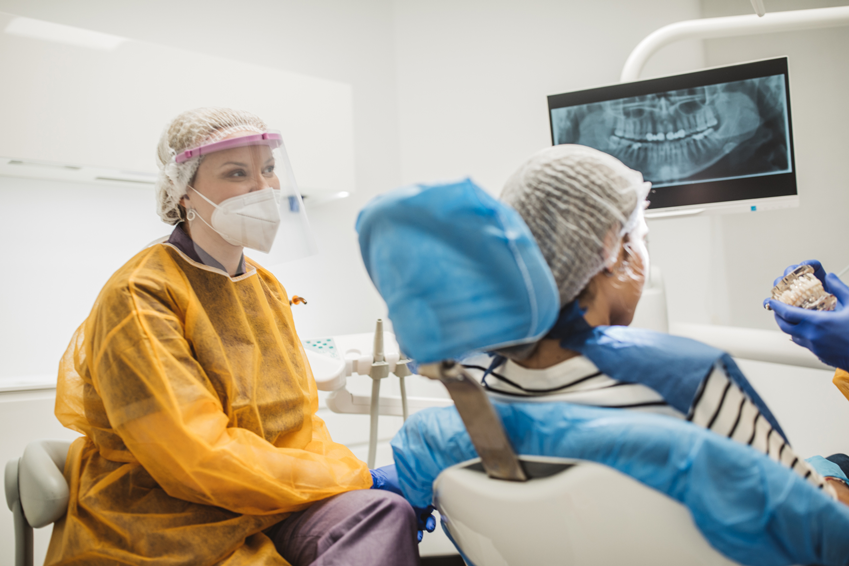Were you expecting to receive a dental implant, only to find that you don’t have enough healthy natural bone for a successful procedure?
The cause may be one of many…
- Empty spaces remaining after teeth were removed
- Periodontal disease
- Various dental procedures which rendered weak areas in the bone
- Long-term use of dentures
- Defects arising from tooth development
- Traumatic facial injury
Of these causes, missing teeth is one of the most common. This short video does a great job of explaining why bone loss occurs when teeth are missing.
Devastating Consequences of Tooth Loss | World Dental Implant Awareness Organization
Solutions for Bone Restoration
If you suffered disappointment learning you suffer from bone insufficiency, don’t let it prevent you from bringing back your smile. There are several treatments that could restore healthy bone to support a successful dental implant procedure.

 Bone Grafts
Bone Grafts
Grafting actual bone tissue to weak points effectively helps support your implants and prevents further loss.
Bone grafts can take place right in the implant dentist’s office with local or general sedation. Life after the procedure should be about normal, but patients must take care to keep the area free from infection. Once the introduced material fuses to existing bone, often after several months, implants can then be safely installed.
The bone tissue can be derived in three ways…
- Your own natural bone harvested from another part of your body
- Donor bone tissue
- Processed/synthetic bone materials

 Sinus Lift
Sinus Lift
When back teeth in the upper jaw have been removed, the natural bone supporting those teeth invariably starts to deteriorate, causing the sinus cavity to grow much larger than normal.
A sinus lift, also known as sinus elevation or augmentation, is a procedure to replace that missing bone material below the sinus so that dental implants can be placed.
Using today’s techniques, the procedure should have minimal discomfort or impact on speech. The bone material must fuse with natural bone over a period of four months to a year before implants can be successfully installed.

 Ridge Expansion
Ridge Expansion
A ridge expansion can help your appearance hampered by the ridge formed when teeth go missing. This procedure is followed in the event your jaw is not wide enough to actually support dental implants.
The practitioner adds bone graft material to a small ridge, or space, that is formed along the top of the jaw. Depending on the situation, implants can be installed directly after the ridge expansion, or a wait of four to 12 months may be required to ensure full healing. Downtime is minimal or non-existent for patients receiving this treatment.
Today’s natural bone restoration technology achieves what was once thought impossible. Speak to your dental practitioner about your smile enhancement!

